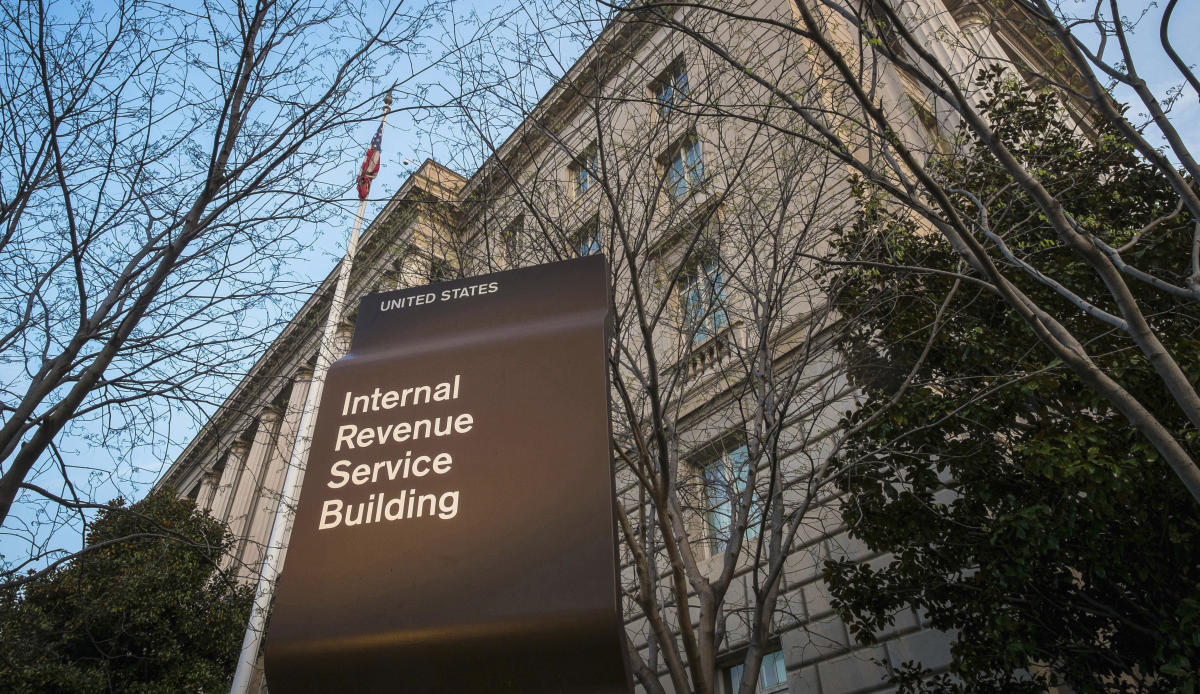
Can you feel that energy in the air, the crackle of excitement among America’s accountants? Yes, today marks the official kickoff of tax season. And while the IRS code hasn’t undergone any huge changes that are likely to impact your return year, there are at least a couple of developments worth a heads-up.
Depending on what state you reside in, you could be newly eligible to use the IRS’s Direct File program, which allows you to submit a return straight to Uncle Sam for free, and has some nice upgrades this year that should make it useful to a greater number of filers. If you’re a gig worker or small business owner who gets paid via apps like PayPal or Venmo, meanwhile, you’re likely covered by some new reporting rules meant to stamp out low-level tax fraud.
Read on for more details.
Read more: How to file your 2024 tax return for free
Direct File is expanded
After last year’s well-reviewed pilot effort, the IRS is expanding its Direct File program to 13 new states, bringing the grand total to 25. The portal is still designed for relatively simple returns but now comes with some new functions that you typically find in private tax prep software, like the ability to automatically import your W-2 information straight from the IRS. It can now also handle a larger variety of tax circumstances, including returns that claim the following credits:
-
The Earned Income Tax Credit
-
Child Tax Credit, Child and Dependent Care Credit
-
The Affordable Care Act’s Premium Tax Credit
-
The Credit for the Elderly and Disabled
-
Retirement savings contribution credits
The IRS believes those additions should make 30.3 million Americans eligible to use Direct File this go-round. Bear in mind, though, the program still has strict income limits:
-
Individual filers are only eligible if they make less than $200,000 in wages a year, or $168,000 if they have more than one job.
-
Couples filing jointly must earn wages of $250,000 or less.
-
Couples filing separately must each have wages under $125,000.
Taxpayers also can’t use Direct File if they have certain kinds of income, like capital gains or rental earnings. So, if you’re a landlord or day trader, move along.
Direct File earned solid reviews last year, as Americans used it to submit just over 140,000 returns. In a 15,000-person customer service survey, about 90% of users rated their experience as “excellent” or “above average” and more than three-quarters said the program was easy to use compared to the method they’d relied on to file taxes the year before. The Government Accountability Office also deemed the pilot a success. However, it’s possible customer service could take a hit this year thanks to the Trump administration’s federal hiring freeze, which may hurt the IRS’s ability to properly staff up.
Direct File’s political future is also uncertain. Republican lawmakers have called on the Trump administration to end it, Treasury secretary nominee Scott Bessent assured members of Congress earlier this month that he would keep it running this tax season, but he declined to make any long-term promises — saying only that he would “consult and study the program.”
You can pop directly onto the IRS website for a more detailed tool that will help you figure out your eligibility within each state.
Free File is still around
If you make less than $84,000 a year, you’re also eligible to use the Free File system that the IRS has long run in partnership with private tax-preparing companies. (Direct File is more or less meant to replace it over time). The government reported that the program saw an early 10% uptick in use through March of last year.
New 1099-K reporting
If you use third-party payment apps like Venmo, CashApp, or PayPal for business purposes, you could be receiving a 1099-K form for the first time this year. Ditto if you sell merchandise on a site like eBay or Etsy.
That’s the result of a reform included in the 2021 American Rescue Plan Act meant to limit some fairly common types of tax dodging. In the past, the platforms were only required to file 1099 forms for individuals with at least 200 transactions worth at least $20,000, which allowed a good deal of income to go unreported. The legislation reduced that threshold to just $600.
The IRS has delayed implementing the law in order to work out its complicated logistics, and this year, as an intermediate step, it’s setting the reporting requirement at $5,000. The rule only covers business income, not payments to family and friends like splitting a dinner bill or sending money to your roommate to cover rent. Apps like Venmo allow users to mark their transactions as business or personal, and the IRS encourages taxpayers who receive a 1099-K by accident to ask for a corrected copy. Otherwise, you can report it as an error on your tax forms.
One big loophole to note: Because of the unique way it operates, Zelle does not consider itself subject to the new reporting requirements and won’t be issuing 1099-Ks under them. That may or may not have something to do with why every single handyman you’ve probably used in the past year has asked to be paid on the app.
Read more: Tax reporting changes for Venmo and PayPal in 2024
The standard deduction is getting huge
There’s a strong chance you won’t be itemizing your deductions this year. Around 90% of Americans have taken the standard deduction in recent years after it was significantly increased by the 2017 Tax Cuts and Jobs Act. This year, it’s jumping to $14,600 for an individual and $29,200 for a couple — which, since we were just on the topic, should make it easier for some folks to use a free program like Direct File.
Jordan Weissmann is a senior reporter at Yahoo Finance.
Read the latest financial and business news from Yahoo Finance
https://s.yimg.com/ny/api/res/1.2/XdvTXiFISXVNRCkjfpwVRw–/YXBwaWQ9aGlnaGxhbmRlcjt3PTEyMDA7aD02OTQ-/https://s.yimg.com/os/creatr-uploaded-images/2025-01/1a6fe0f0-dcd1-11ef-bf54-abf641c45adb
2025-01-27 11:29:29